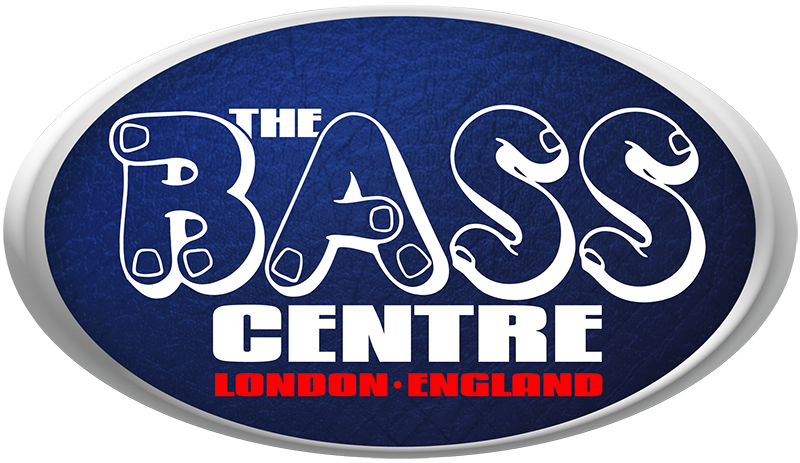Inspired by the wonderful, warm tones heard on countless, classic sides from the unstoppable Tamla-Motown hit factory, the Bass Centre brings you the Bass Collection Detroit Bass.
A soulful little number, the Detroit sports eye-catching, period-accurate finishes and pickguards, a light-weight body design, the Bass Centre's trademark "Super Slim Sixties" ® neck profile, a single split single-coil pickup with exposed pole pieces and a vintage bridge assembly with knurled saddles. Chrome "ashtray" pickup and bridge covers and flat-top control knobs complete the full-on, retro look.
For capturing Motown supremo James Jamerson's smooth, melodic lines, this bass has got it all going on, with Elites Detroit Flatwounds providing a rich, authentic tonal response and the ultimate, smooth ride. The Detroit's punchy, balanced and superbly defined sound is also equally adept for driving rhythm 'n' blues, rumbling punk funk, bass heavy trip-hop, or ocean-deep dancehall grooves.
The Bass Centre is pleased to be able to offer the option of a lined fretless fingerboard on all Detroit models, for a modest premium, with the work expertly conducted by our own experienced in-house tech Chris Ward.
For a limited period, this elegant, practical, and comfortable, 100% vegan custom strap is FREE with every purchase from the Bass Centre's superb Bass Collection range.
What's Going On
The 21st century Bass Collection Detroit Bass continues the Bass Centre's long-standing fascination with the incomparable James Jamerson, an obsession that first became evident way back in the early '90s, when Chris Maury and Alan Morgan from our Los Angeles branch commissioned the Fender Custom Shop to fashion a limited edition replica of the legendary Motor City bassist's famous "Funk Machine".
Earning its soubriquet from fellow Tamla Motown house musicians, the original Funk Machine was a 1962 Fender Precision with three-tone sunburst finish, tortoiseshell pickguard, rosewood fretboard, clay dot markers, and chrome pickup and bridge covers — all stock, aside from the word "funk" crudely carved on the neck heel and coloured with blue ink by the man himself.

Although the exact date that Jamerson acquired the bass (after the theft of two older P-Basses) is disputed, it is unquestionably the instrument he is most renowned for, and the one used on so many of his astonishing performances for (amongst many others) Diana Ross & the Supremes, The Temptations, Gladys Knight & the Pips, Stevie Wonder, Jr. Walker & the All Stars, Smokey Robinson, Martha & the Vandellas, The Four Tops, and of course, Marvin Gaye, whose landmark 1970 collection "What's Going On" captured Jamerson at the height of his nimble, improvisational creativity.
Continuing active duty as his main instrument throughout the 1970's on hit sessions for Gladys Knight & The Pips, Eddie Kendricks, Wah-Wah Watson, Bonnie Pointer, Robert Palmer, Dennis Coffey, and Ben E. King, the iconic Funk Machine was stolen just days before Jamerson's untimely death in 1983 and has never been recovered.
The Dirt Keeps the Funk
As enthusiasm for all things low-end exploded during the years after his death, the West Coast Bass Centre crew responded to renewed interest in Jamerson's maverick genius by hitting upon the idea of creating an instrument dedicated to celebrating his visionary talent.
Alongside a recreation of Jaco's "Bass of Doom", production on the Bass Centre's JJ Tribute began at the Fender Custom Shop in 1990. Under the stewardship of FCS manager John Page and master builder J.W. Black, its appointments faithfully followed the original, thanks to the invaluable assistance of Jamerson's son, James, Jr., with special attention paid to replicating the C-shaped, "blade" neck, markedly slimmer and flatter than the chunky neck of Fender's then-contemporary '62 re-issue (a tradition that the Detroit continues to honour with its "Super Slim Sixties" profile).
Strung, naturally, with a fresh set of La Bella flatwounds and with a pristine, pre-relic'd finish (even though Jamerson famously never cleaned his instrument, maintaining that "the dirt keeps the funk"!), the guitar also bore a custom engraved neck plate and was shipped in an appropriately vintage styled custom case with a numbered, signed certificate of authenticity.
Although conceived as a limited edition of 100 pieces, production ultimately only ran to (at most) 50 instruments by the time the Studio City store closed in January 1996.
Ain't No Mountain High Enough
Should it ever resurface, the original Funk Machine would certainly eclipse the auction sales value of James Jamerson's 1961 P-Bass (sold for $68,000 in 2017) and John Entwistle's Frankenstein creation (under the hammer in 2003 for $100,000), perhaps hitting the heights of Bill Wyman's Competition Orange 1969 Fender Mustang which sold in 2020 for a monstrous $384,000. Even examples of the rare Bass Centre/Fender collaboration, when they do surface, remain reassuringly expensive... so, in our humble opinion, the Bass Collection Detroit — an absolute joy to play and a quite superb, period accurate instrument in its own right — represents sensational value for money.

